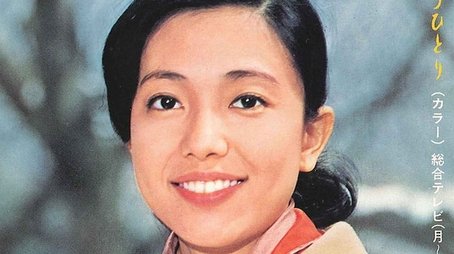
Ask Your Own Question
What is the plot?
Mayuko Hitori begins with the introduction of Mayuko, a young girl living in a small, rural village in Japan. The story opens with her daily life, showcasing her interactions with her family, particularly her loving but strict father, who has high expectations for her future. Mayuko is depicted as a bright and curious child, often daydreaming about the world beyond her village.
As the narrative progresses, Mayuko's life takes a turn when her father falls ill. The family struggles to cope with the financial burden of his medical treatment. Mayuko, feeling the weight of responsibility, decides to take on odd jobs around the village to help support her family. This decision marks a significant shift in her character, as she transitions from a carefree child to a more mature and determined individual.
One day, while working at a local shop, Mayuko meets a kind-hearted boy named Kenji. They quickly form a bond, sharing dreams and aspirations. Kenji encourages Mayuko to pursue her education, which reignites her passion for learning. However, their budding friendship faces challenges as Mayuko's family situation worsens, and she is forced to prioritize work over school.
In a pivotal scene, Mayuko discovers that her father's illness is more severe than initially thought. The family receives news that they need to raise a substantial amount of money for a critical surgery. This revelation deepens Mayuko's resolve to help her family, and she takes on more jobs, often working late into the night. The emotional toll of her sacrifices begins to weigh heavily on her, leading to moments of doubt and exhaustion.
As the story unfolds, Mayuko learns about a scholarship opportunity that could allow her to continue her education. Torn between her responsibilities at home and her desire to pursue her dreams, she faces a difficult decision. After much contemplation, she decides to apply for the scholarship, believing it to be a chance to secure a better future for herself and her family.
The scholarship application process is fraught with challenges. Mayuko must gather various documents and complete an essay that reflects her life experiences. During this time, Kenji supports her, helping her refine her essay and encouraging her to express her true self. Their friendship deepens, and they share moments of vulnerability, revealing their fears and hopes.
In a dramatic turn of events, Mayuko's father's condition deteriorates, and he is hospitalized. This crisis forces Mayuko to confront her priorities once again. She visits her father in the hospital, where he expresses his pride in her efforts and urges her to pursue her education, regardless of the circumstances. This heartfelt conversation strengthens Mayuko's resolve to succeed.
After a tense wait, Mayuko receives news that she has been awarded the scholarship. Overjoyed, she rushes to share the news with her family. However, the joy is short-lived as her father's health continues to decline. Mayuko grapples with the bittersweet nature of her achievement, feeling both elated and heartbroken.
In the climax of the story, Mayuko's father passes away, leaving her devastated. The loss profoundly impacts her, and she struggles to find her footing in the wake of his death. In her grief, she reflects on her father's words and the importance of pursuing her dreams. This moment of introspection leads her to recommit to her education, honoring her father's legacy.
The final scenes depict Mayuko starting her new life as a scholarship student in a larger city. She faces the challenges of adapting to a new environment, but she is determined to succeed. The story closes with a montage of Mayuko studying, making new friends, and slowly healing from her loss, symbolizing her growth and resilience. The journey she undertakes is one of self-discovery, perseverance, and the enduring power of hope.
What is the ending?
In the ending of "Mayuko Hitori," Mayuko confronts her past and the emotional turmoil that has shaped her life. She ultimately finds a sense of closure and acceptance, leading to a poignant resolution of her internal struggles. The story concludes with her stepping into a new chapter of her life, symbolizing hope and renewal.
As the final scenes unfold, we see Mayuko standing at the edge of a serene lake, the sun setting behind her, casting a warm glow over the water. The air is still, and the atmosphere is heavy with the weight of her memories. She reflects on her journey, the pain of loss, and the moments of joy that have defined her existence.
In a flashback, we witness Mayuko's childhood, filled with laughter and innocence, juxtaposed against the harsh realities she faced as she grew older. The memories flood her mind, and we see her grappling with the loss of her parents, the loneliness that followed, and the struggle to find her identity in a world that often felt unwelcoming.
As she stands by the lake, she recalls the pivotal moments that led her here: the friendships she forged, the betrayals she endured, and the love she sought but often felt eluded her. Each memory is vivid, painted with the colors of her emotions--joy, sorrow, anger, and ultimately, acceptance.
In the final moments, Mayuko takes a deep breath, her face reflecting a mixture of sadness and relief. She closes her eyes, allowing the cool breeze to wash over her, symbolizing a cleansing of her past. With a newfound strength, she opens her eyes and gazes at the horizon, where the sun is setting, signifying the end of one chapter and the beginning of another.
The camera pans out, capturing the vastness of the lake and the beauty of the landscape, as Mayuko steps away from the water, ready to embrace whatever comes next. The scene fades to black, leaving the audience with a sense of hope and the understanding that while the past shapes us, it does not define our future.
In this conclusion, Mayuko's journey is one of resilience and transformation. She has faced her demons and emerged stronger, ready to face the world anew. The fate of the main characters is intertwined with her journey; while some remain in her memories, their impact on her life is undeniable, shaping her into the person she has become. The story closes on a note of optimism, suggesting that healing is possible, and new beginnings await.
Is there a post-credit scene?
The TV show "Mayuko Hitori," produced in 1971, does not feature a post-credit scene. The series concludes its narrative without any additional scenes after the credits roll. The final moments of the show focus on the resolution of Mayuko's journey, emphasizing her growth and the relationships she has built throughout the series. The absence of a post-credit scene allows the audience to reflect on the themes of solitude, resilience, and personal discovery that are central to Mayuko's character arc. The ending leaves viewers with a sense of closure, encapsulating the emotional weight of her experiences without the need for further elaboration.
What are the main challenges that Mayuko faces throughout the series?
Mayuko, the protagonist, faces numerous challenges that test her resilience and determination. One of her primary struggles is her isolation, as she often feels disconnected from her peers and family. This emotional distance is compounded by her pursuit of personal identity and independence, which leads her to confront societal expectations and familial pressures. Additionally, Mayuko grapples with the complexities of her relationships, particularly with her parents, who have their own expectations for her future. These challenges manifest in various scenes where Mayuko must choose between following her heart and adhering to the traditional roles imposed on her.
How does Mayuko's relationship with her parents evolve throughout the series?
Mayuko's relationship with her parents is fraught with tension and misunderstanding, particularly with her mother, who embodies traditional values and expectations. Initially, Mayuko feels suffocated by her mother's demands, leading to frequent arguments that highlight their differing worldviews. As the series progresses, there are pivotal moments where Mayuko's struggles force her parents to confront their own beliefs and fears. A particularly emotional scene occurs when Mayuko's mother begins to see the consequences of her rigid expectations, leading to a heartfelt conversation that marks a turning point in their relationship. This evolution is characterized by moments of vulnerability and reconciliation, showcasing the complexity of familial love.
What role do Mayuko's friendships play in her development?
Mayuko's friendships are crucial to her character development, providing her with support and a sense of belonging. Throughout the series, she forms bonds with a diverse group of friends who each represent different aspects of her personality and struggles. For instance, one friend encourages her to embrace her artistic talents, while another challenges her to confront her fears. These friendships are depicted in vibrant scenes filled with laughter and shared experiences, but they also reveal the underlying tensions of adolescence. A significant moment occurs when a betrayal from one of her friends forces Mayuko to reevaluate her trust and the nature of her relationships, ultimately leading her to a deeper understanding of herself and her values.
What specific events lead to Mayuko's moments of self-discovery?
Mayuko's journey of self-discovery is marked by several key events that challenge her perceptions and push her towards personal growth. One such event is her participation in a local art competition, which serves as a catalyst for her to explore her creative passions. The pressure of the competition brings forth her insecurities, but it also ignites a newfound confidence as she learns to express herself through her art. Another pivotal moment occurs during a family crisis that forces Mayuko to step up and take responsibility, revealing her inner strength and maturity. These events are depicted with rich emotional detail, showcasing her internal struggles and triumphs as she navigates the complexities of adolescence.
How does the setting influence the story and Mayuko's experiences?
The setting of 'Mayuko Hitori' plays a significant role in shaping the narrative and influencing Mayuko's experiences. The series is set in a small, close-knit community that reflects traditional Japanese values, which often clash with Mayuko's desire for independence. The picturesque yet confining environment is depicted through vibrant visuals of local festivals, school life, and family gatherings, all of which serve to highlight Mayuko's feelings of entrapment. Key scenes, such as her solitary walks through the town or her interactions at school, emphasize her internal conflict between belonging and individuality. The setting not only serves as a backdrop but also acts as a character in its own right, influencing Mayuko's decisions and emotional state throughout her journey.
Is this family friendly?
"Mayuko Hitori," produced in 1971, is a drama that explores themes of loneliness, family dynamics, and personal growth. While it is generally suitable for a family audience, there are some elements that may be considered objectionable or upsetting for children or sensitive viewers.
-
Themes of Loneliness: The protagonist, Mayuko, often grapples with feelings of isolation and abandonment, which may resonate deeply and evoke sadness.
-
Family Conflict: There are scenes depicting tension and conflict within Mayuko's family, including arguments and emotional distress, which could be unsettling for younger viewers.
-
Emotional Struggles: Mayuko experiences significant emotional turmoil as she navigates her relationships and personal challenges, which may be intense for sensitive audiences.
-
Societal Pressures: The show addresses societal expectations and pressures, particularly on women, which may lead to discussions about gender roles that some viewers might find uncomfortable.
-
Depictions of Grief: There are moments that touch on loss and grief, which could be distressing for children or those who have experienced similar situations.
Overall, while "Mayuko Hitori" contains valuable life lessons and emotional depth, its exploration of complex themes may require parental guidance for younger viewers.











